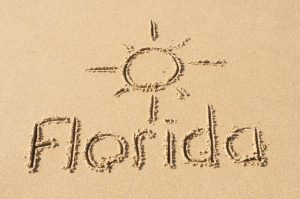The Best HOA Accounting Methods HOA Bookkeeping Tips

From this analysis, the board, working with a management company, can determine the budgetary dollar-amount required to be set aside each year. An HOA reserve study is an in-depth analysis of the physical condition of your associations’ capital components. It serves as an appraisal of the financial health of the HOA’s reserve funds.
Get a Free HOA Management Assessment

This process can be error-prone and time-consuming if performed manually, but an integrated banking system could be the solution your company needs to simplify and optimize association accounting. If financial statements are incomplete or unclear, they can confuse association members and cause mistrust within the community and board members. Transparency and accountability play a crucial role in building trust with community members. Regularly share financial statements with the members and be ready to answer any questions they may have. For any HOA board, managing community finances is one of the most critical responsibilities.
- It also involves implementing best practices, maintaining transparency and accountability, and avoiding common mistakes.
- When you have the most effective systems in place, the financial management service for your HOA or condo ends up paying for itself.
- HOA accrual accounting is simply superior because it helps you financially plan and budget for the future as well as allows you to make informed decisions.
- A good way to keep track of your income and expenses over the course of a 12-month period is to create an HOA accounting spreadsheet.
- Therefore, you should practice proper accounting and financial management to ensure your HOA remains in good financial condition.
- An HOA reserve study is an organizational report used for managing the HOA reserve account.
Data Found in HOA Financial Statements
- Most importantly, having detailed financial statements readily available to all HOA members can promote transparency between the board and the community.
- This report gives the homeowners association and the community manager information to help them track financial transactions.
- It might seem tedious, but establishing these internal controls can deter fraud and prevent theft within your association.
- Some associations have it in their CC&Rs or bylaws that a certain method of accounting should be used when recording and preparing financial statements.
- Whether the associations you manage are big or small, smart bookkeeping undoubtedly plays a key role in the health of these communities.
- Given that funds are essentially having more than one general ledger, the accounts can be designated by the special use of account numbers, each set of numbers representing a specific fund.
Out of the three HOA accounting methods, the Accrual Basis is also the only basis that conforms with GAAP. Homeowners Associations, as well as many other non-profit and public sector entities, have a need for special reporting to financial statements that show how money is spent, rather than how much profit was earned. Profit-oriented businesses only have one set of self-balancing accounts or general ledger. On the other hand, nonprofits can have more than one general ledger depending on their accounting for homeowners associations needs. Homeowners Associations must be able to produce reports that can detail expenditures and revenues for multiple funds, and reports that summarize the financial activities of the entire entity across all funds. For example, under California law, the Association’s Reserve Account must be a separate fund from the operating account.
- Hiring Condo & HOA self-management support services will reduce the time required to be a Board member.
- Keeping track of all the expenses is hard work, and knowing what they are is often half the battle.
- However, liability accounts like “Accounts Payable” will continue to be absent.
- Association funds should be directly deposited into the association’s bank account on a daily basis, and recorded by the receivable department.
- One of the community manager’s primary goals should be to protect the association’s assets with financial procedures of checks and balances, to minimize risk of errors and losses.
- The CPA will verify the debtors and creditors on amounts owed and they will also inspect the homeowners association’s inventories.
- Remember, a balance sheet must always stay balanced with total assets equating to total liabilities plus equity.
The Three Types of HOA Accounting Methods

As a board member, you should know how to analyze financial reports to prepare the association for maintenance, repairs, and homeowner bankruptcy. Lay a good foundation for successful financial management by using the best HOA accounting method. In most states, auditors will check associations’ books at least once a year to make sure all records around HOA finances are being kept honestly and accurately. Though reports are a major facet that helps you track and begin the path to a financially respectable HOA, all this reporting will be for naught if you do not properly manage your bank balance sheet accounts and assets.
Using the Cash Basis of Accounting, you record income and expenses when money changes hands. That means you only report transactions when you pay for them or receive payment for them. Using this method, https://www.bookstime.com/ no such account titles like Assessments Receivable or Accounts Payable appear on your financial statements.

HOA Budgeting

The categories and format of the Balance Sheet are based on what are called Generally Accepted Accounting Principles (GAAP). These principles are the rules established so that every business prepares their financial statements the same way. By law, the Reserve Fund must have a separate bank account, but in other cases you can have different HOA accounting funds for all the money that are in one bank account. Fund accounting is a particularly useful financial reporting system for nonprofit organizations and the public sector, due to their unique operating requirements and the specific needs of their financial statement users.

Leave a Comment